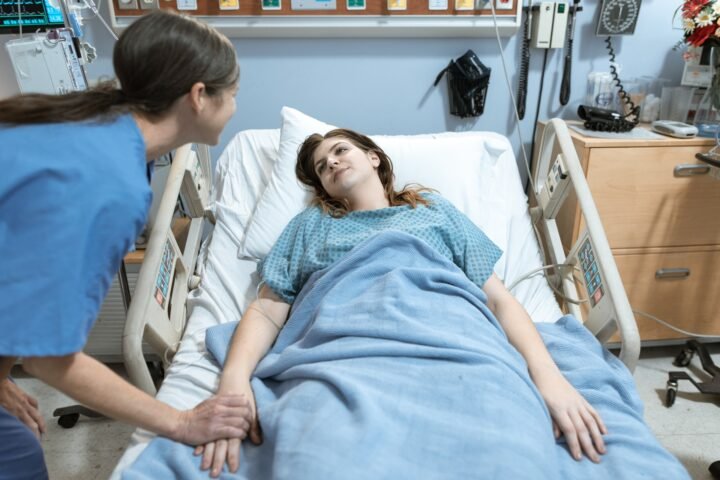The Role of Nurses in Primary Health Care
Primary healthcare is about caring for the community and ensuring that top-notch medical help is available for the entire population. Primary healthcare is the fundamental right of every individual, yet not everyone can access hospitals or clinics to tap into these facilities.
According to the WHO, about 930 million globally are at risk of falling below poverty since they have to pay for pocket treatments. Scrutinizing these numbers further within the US, roughly 30 million Americans had no health insurance in 2021.
So how can this issue be remedied? The answer is simply by turning to the nursing body. Nurses do more than look after patients in hospitals. These medical caregivers can educate, advocate and work with patients in clinics and facilities outside traditional hospitals. To give you a better idea, here’s what the nursing community can do to provide quality primary healthcare:

Look After Patients of All Ages
The healthcare sector gets all kinds of patients, from babies to older people. Therefore, no matter the type of patient, nurses should ensure they can treat and work with them effectively. This is a delicate process since a nurse approaches a child differently when working with an older patient.
However, you can only do this task if you are up for the job and have the right educational qualifications that give you the knowledge to work with your patients. As a registered nurse, you may have a superficial understanding of treating your patients, but once you get a BSN, you’re far more informed about looking after your patients. Luckily, if you have been searching for opportunities to get a BSN without quitting your job, you can turn to a lucrative RN to BSN program online and fast-track your way to a degree.
A BSN provides you with a more comprehensive outlook of your job. You can distinguish between caring for a child and an adult patient. This includes administering medication, assessing their injuries, and the kind of language to use when dealing with a younger patient compared to an older one. You can also document a patient’s health status on a dedicated electronic healthcare record system or EHR, for short. All of these make it easier for the healthcare sector to look after their patients without neglecting them or finding it difficult to treat them.
Provide Patients with Holistic Care
Primary healthcare also refers to holistically providing care for your patients. This includes addressing your patient’s spiritual, emotional, and mental needs instead of focusing on their physical welfare alone. Getting medical help can be an overwhelming experience; some patients may feel scared to hear their diagnosis or fear the worst about their treatment; in such cases, it helps to have a loving and caring nurse around.
Holistic care is a multilayered process; it involves respecting your patient’s treatment preferences and not forcing them to consent to a procedure. It also includes allowing your patient’s friends and family to be part of their treatment process and allowing them to weigh in when needed. You may also refer your patient to chiropractors, therapists, and wellness coaches instead of pushing for conventional medicine if required.
Sometimes, your patient asks you to pray with them and discuss spirituality or religion to feel more at ease. In such cases, don’t hesitate to be there for your patient and let them feel more comfortable around your presence. All of these can boost your patient’s wellness and accelerate their well-being.
Educate Patients and Support Them In Their Journey
Patients need to understand what they’re being treated for and what their diagnosis entails. Numerous procedures and medications are hard to understand and can confuse patients. This is where you come in. You must educate patients about what they’re going through, their situation, and what options will help them heal better.
As a nurse, your role in educating patients extends to when they’re discharged. For example, you must teach patients how to change their bandages, what medicines to use at what time, and what warning signs they need to look out for. Patients must know how to look after themselves at home after an operation or surgery.
Along every step of the way, you’re vital in educating and guiding patients, even those who can’t come to the hospital. You’re also responsible for connecting patients to resources like YouTube videos and articles that can educate patients better on their ailments. This reduces the burden on the healthcare sector and helps the community become more informed about their well-being.
Work With Various Communities
Not every patient can access hospitals or healthcare facilities. But you can help these communities. As a nurse, you can extend your help outside of hospitals. As a primary healthcare nurse, you have complete jurisdiction to work with public health professionals to learn what communities are struggling with and where they need your support.
Once you have this information, you can connect them to the nearest clinic or administer the necessary vaccines they need to combat common illnesses like the flu. Similarly, as a primary healthcare nurse, you’re also crucial in teaching these communities about utilizing telehealth services, educating them on essential topics like hygiene, a well-balanced diet, and sensitive issues like drug abuse.
Furthermore, as a nurse, you can guide pregnant women to manage their health better while providing antenatal and postnatal care instructions. Your willingness to help out in underprivileged communities can help them manage their health better and prevent them from struggling with easily avoidable illnesses. Your research and finding can be a great resource to public health officials since they can use this information to publish researches that can improve the community and the scientific societies understanding of healthcare.
Final Thoughts
Nurses are integral to community wellness, including providing primary healthcare to patients. Primary healthcare creates an inclusive environment that encourages all patients to seek help. This includes minding your patient’s ages and caring for them accordingly. If your patient is a child, you must approach them differently than an older person.
As a nurse, you’re also vital in holistically caring for your patients, such as emotionally being there for them and spiritually comforting them if needed. You’re also responsible for educating your patients and explaining what aftercare is so they can follow your instructions to the t. Finally, as a primary healthcare nurse, you can expand your practice and do more for the surrounding population. This boosts healthcare and keeps the community well-informed, which benefits them.


